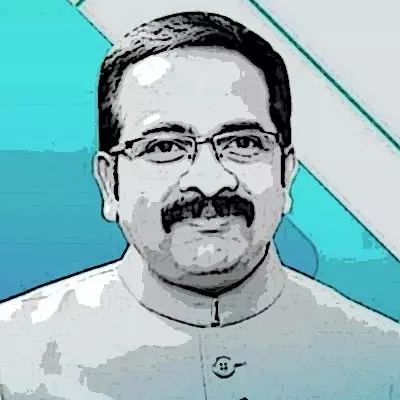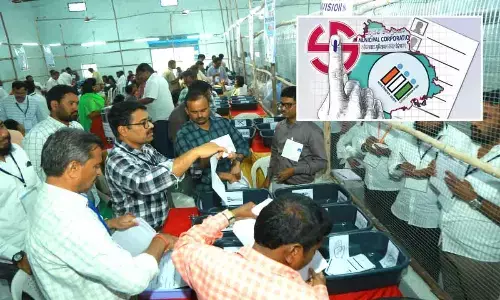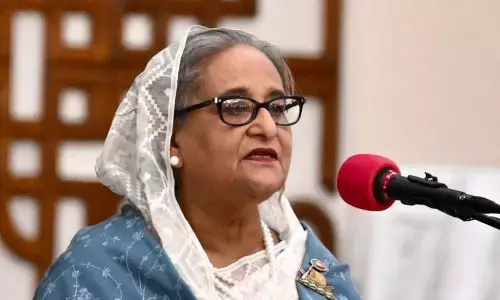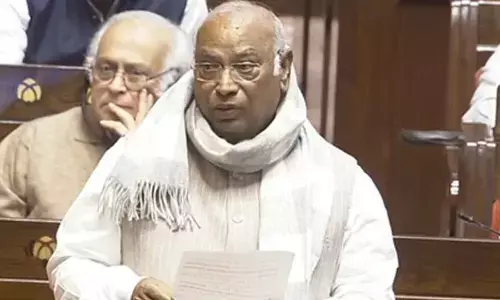PROJECT PEGASUS: A NON-ISSUE

Project Pegasus is a non-issue. It’s much ado about nothing. The high-pitched visual drama, which is underway both in the parliament and in mainstream media, screams of commonsense deficit in our nation, especially in the opposition party leaders.
Project Pegasus is a non-issue. It's much ado about nothing. The high-pitched visual drama, which is underway both in the parliament and in mainstream media, screams of commonsense deficit in our nation, especially in the opposition party leaders.
Project Pegasus is a scripted agenda of two NGOs to target non-western nations, especially India – the largest democracy in the world. The agenda is self-serving for these two NGOs masqueraded as watch-dogs of human rights and media freedoms. They have an imminent need to accomplish big banner print headlines, eyeballs on internet news portals, viewership of electronic media to ensure their funding agencies keep the fund tap flowing. They need to showcase results to their masters and fund-handlers.
'Amnesty International,' one of the NGOs responsible for this bizarre investigation is infamous for its scandalous prejudice, bias and partisan representation on issues ranging from terrorism, extremist, civil rights movements and anti-national plots. 'Forbidden Stories,' the second NGO responsible for this self-proclaimed investigation, is a 4-year young organisation founded in Paris. It has no record of any great accomplishments in protecting media freedoms and journalist rights, for which it was originally founded.
I also wonder loudly as to why these two NGOs have chosen only 17 select media houses and 80 select journalists to investigate and publish this investigative story, which has neither substance nor evidence. Is it also a coincidence that most of the select journalists and select media houses are anti-rightwing, anti-democracy, pro-terrorism, pro-extremism and necessarily anti-Modi and anti-India?
Project Pegasus has bundles of conjuncture, fiction and a dirty plot to defame India, its democracy and its tall leaders. Their agenda is crystal clear and they haven't glossed anything over it.
The addictive craving for sensationalism in India is the only reason why 'Project Pegasus' is making news headlines in the Indian media for the last few days. Other than wild imagination and hyperbole, there's not a shred of evidence that leads this investigation conclusively attributing illegal action to any Indian institution or agency. With this level of investigative journalism, if there's any reason and logic prevailing in the news broadcast business, this story should not have received more than just a mention in a non-primetime news bulletin. However, I understand that I am asking for too much.
What the Project Pegasus investigation has presented so far are random 50,000 phone numbers of which around 300 are supposed to be 'probable targets in India.' If it is just a list of 50,000 random numbers of important people across the world, one doesn't need 80 journalists to dig for weeks. There are many database sellers online, who can share that information for a few hundred dollars in under few minutes. Project Pegasus has not gone beyond these 'probable target list' to prove anything, against anyone.
Opposition leaders in India get very less opportunities to attack the Modi government – they are short of real issues. So, when they get anything from outside the country and especially through a section of media, they tend to go overboard with zero damage assessment. By stalling the parliament for days over a non-issue, which cannot be substantiated beyond a statement of accusation, opposition is proving themselves to be unworthy and incompetent to discuss people's issues of serious concern during the monsoon session.
The government has on day one refuted the baseless accusation of Project Pegasus and has issued a statement in the parliament, that it has not undertaken any unauthorised snooping, on any individual in the 'probable call-list' which is being propagated.
I list four reasons why Project Pegasus is a full scale 'Dud' issue and will simply be a 'storm in the tea cup,' before it dissipates into a trivial story of zero-concern.
Privacy is a myth
In reference to the usage of current generation of smart phones, which I bet most of the important 'probable targets' would be using as proclaimed by the Project Pegasus investigators, violation of 'privacy' is a myth.
I don't think any key leader regionally, nationally or globally will use a listed mobile phone on his name to communicate anything worthy of snooping by anyone. It is below juvenile to imagine Rahul Gandhi will spell out his electoral strategies on a smartphone listed in his name, to enable the government to eves-drop on his conversation. It is below political naivety to even question the government on these allegations, leave alone stall the parliament for this silly and baseless accusation.
To make a national issue out of a non-issue highlights the lack of real issues against Modi government, for the opposition parties in India. They are simply wasting the precious tax payer's money and valuable time of the parliament proceedings.
Modi government is doing everything to protect the Right to Privacy enshrined in the Article 21 of Indian Constitution. However, the advancement of invasive technologies and eager adoption of the same by individual citizens have transformed 'Privacy' into a notional right and is losing its sanctity at an unprecedented pace. The expectations on this constitutional right have changed quite a bit, through the last decade.
Surveilance is normalized
Everyone is being watched everywhere, every day. And surprisingly no one seems to have any issue with it anymore.
There was a time, when governments were the only ones who could authorise surveillance on an individual, group or an institution. However, in the current times even a small residential complex has its own surveillance system and watches everyone, all the time. Not to mention the millions of cameras, audio / video-devices present everywhere, when one steps out of home. There are some who even install cameras inside their homes too, to ensure they see and hear everything that happens in their own home.
Any user of a smartphone can now record every call made and received. No conversation is secure and no call unmonitored. Privacy and security have become notional and imaginary.
One doesn't need Pegasus software for surveillance. Everyone is eves dropping on each other, at every opportunity even in the most normal social and work-place settings. I challenge anyone to refute that they have not been snooped upon by their bosses, friends, elevator cameras, personal audio-devises, proprietary employee monitoring software at workplaces, predictive search-engines and bio-metric gadgets.
Surveillance is normalized. What governments can do is too minimal, compared to what we have voluntarily opted for, by using invasive technologies in our personal, professional and social lives.
Where is the sanctity for the 'right to privacy,' when we have allowed technology interference into our personal space to consume us entirely, and cannot survive an hour without it?
Invasive technology welcomed
If privacy were to be our utmost concern, how did we personally arrive at, where we are today? There is no involvement of government, in most of us giving up our right to privacy through our 'open-arms welcome' to invasive technology through social media, electronic-gadgets and Internet in our daily lives.
The invasive smart technology in our mobile phones, laptops, PCs, gaming consoles, home-automation, interactive-audio-devices have decimated the term 'privacy'.
There is nothing the 'Internet' doesn't know about you. In fact, there are many amongst us who want the internet and the electronic gadgets to know more, than what they already know about us. Our current demand on technology is to customise the interface to predict even our complex personal needs and present tailor-made solutions.
Social media – a mockery of privacy
Social Media is a global example of mockery of Privacy. Millions of individuals have become addicted to display their personal lives online. The extremes many users on social-media platforms would go for social validation, through intricate display of their personal lives, private moments, decries validity of any advocacy, for right to privacy anymore. Social Media has become a public parade of personal privacy. It is quite surprising to see how some privacy activists still survive, in these times of unabashed public display of one's private life, through social media platforms.
Unfortunately, giving up the 'right to privacy' has become voluntary and even pro-active, in the times we are in. There are very few left out of this spiraling pandemic of addiction, to invasive technologies.
Interactive audio/video gadgets, biometric wearables, Machine Learning, Artificial Intelligence, Predictive Searches and all other connected devices, have transformed most citizens of the world into 'connected individuals' and privacy seems to have gone out of the window long back.
Going by the speed of technological advances and our quick adaptation, the only place one can actually find 'real-time privacy' is, when one rests permanently in peace.
(Author is the chief spokesperson of BJP Telangana State / an organisational strategist and a global leadership coach)










